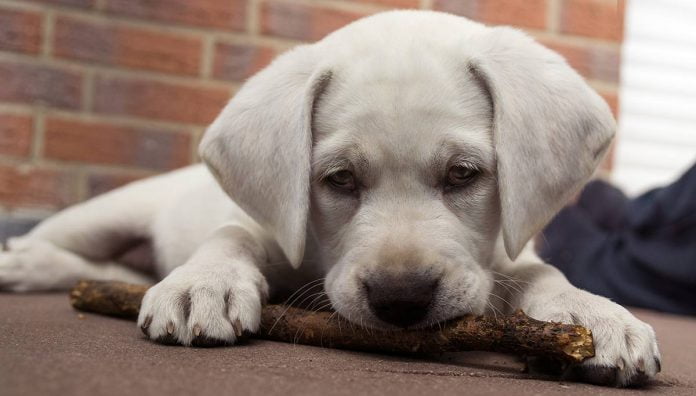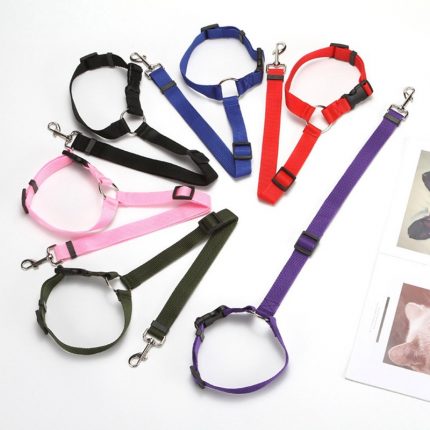Have you ever found yourself wondering why your adorable little puppy suddenly transforms into a whirlwind of energy as soon as the sun goes down? If so, you’re not alone. Many puppy owners experience the phenomenon of their furry friends becoming hyperactive during the evening hours. While it can be both amusing and exhausting to witness, understanding the reasons behind why is my puppy so hyper at night essential in ensuring the well-being of your puppy and maintaining a harmonious household.
Puppies, particularly those in their early stages of development, are naturally curious and full of energy. They spend their days exploring, playing, and learning about the world around them. As a result, they often build up a surplus of energy that needs to be released. However, when night falls, this energy seems to reach its peak, leading to hyperactive behavior that can leave both you and your puppy feeling overwhelmed.
 Understanding the Factors Behind why is my puppy so hyper at night
Understanding the Factors Behind why is my puppy so hyper at night
Here are some of the reasons of why is my puppy so hyper at night:
1. Natural Instincts and Biological Predisposition
One of the primary reasons why your puppy may exhibit hyperactivity at night is rooted in their natural instincts and biological predisposition. Dogs, including puppies, are crepuscular animals, meaning they are naturally more active during the twilight hours of dawn and dusk. This behavior stems from their ancestors, who were most active during these times for hunting and survival purposes. Therefore, your puppy’s hyperactivity at night may be a result of their innate instinct to be more alert and active during these periods.
2. Developmental Changes and Sleep Patterns
Puppies, just like human babies, go through various developmental stages that can affect their sleep patterns. As they grow, their sleep-wake cycles may undergo shifts, leading to bursts of energy during the night. This can be attributed to the adjustment of their bodies to new developmental milestones. It is not uncommon for puppies to experience increased activity, playfulness, and restlessness during this period. Understanding and accommodating these changes can help manage their hyperactivity at night.
3. Insufficient Physical and Mental Stimulation
Another significant factor contributing to your puppy’s hyperactivity at night is the lack of sufficient physical and mental stimulation throughout the day. Puppies have high energy levels and require regular exercise and playtime to release their pent-up energy. If they do not receive adequate physical activity, they may have an excess of energy that manifests itself during the evening hours. Additionally, mental stimulation through interactive toys, training sessions, and puzzle games is crucial for their overall well-being. Insufficient mental stimulation can lead to boredom and restlessness, contributing to nighttime hyperactivity.
4. Environmental Factors
The environment in which your puppy spends their evenings can also impact their level of hyperactivity at night. Factors such as lighting, noise levels, and temperature can affect their behavior. For instance, if the room is too warm or too cold, your puppy may become restless and hyperactive. Similarly, excessive noise or bright lights can overstimulate their senses, leading to increased activity. Creating a calm and comfortable environment for your puppy during the night can help reduce their hyperactivity.
5. Separation Anxiety and Attention-Seeking Behavior
Some puppies may exhibit hyperactivity at night due to separation anxiety or attention-seeking behavior. If your puppy becomes excessively hyperactive when you are about to leave or when they are seeking attention, it could be a sign of separation anxiety. They may try to engage in hyperactive behavior as a means of coping with their anxiety or to gain your attention. Addressing separation anxiety through training and providing them with comfort and reassurance can help alleviate their nighttime hyperactivity.
Practical Recommendations to Calm Your Hyperactive Puppy at Night
Establish a Consistent Routine
Creating a consistent daily routine for your puppy can help regulate their energy levels and minimize nighttime hyperactivity. Set specific times for meals, playtime, exercise, and rest. Stick to a regular schedule as much as possible, including bedtime and wake-up times. Consistency will help your puppy anticipate and adjust to their daily activities, reducing restlessness at night.
Provide Adequate Physical Exercise
Ensuring your puppy gets enough physical exercise is essential for burning off excess energy. Take your puppy for regular walks or engage in active play sessions throughout the day. The duration and intensity of exercise will depend on your puppy’s age, breed, and overall health. Consult with your veterinarian to determine the appropriate exercise routine for your furry friend.
Engage in Mental Stimulation Activities
In addition to physical exercise, mental stimulation is crucial for keeping your puppy’s mind occupied and preventing boredom. Provide interactive toys, puzzle games, and training sessions to challenge their cognitive abilities. Mental stimulation not only tires them out but also helps them develop problem-solving skills and focus their energy in a constructive way.
Create a Calm Sleep Environment
Ensure that your puppy has a designated sleep area that is quiet, comfortable, and free from distractions. Use a crate or a specific part of the room to establish their sleep space. Dim the lights, reduce noise levels, and maintain a moderate temperature to promote relaxation. Consider using a cozy bed or blanket that your puppy associates with sleep to create a calming environment.
Practice Relaxation Techniques
Teaching your puppy relaxation techniques can help them wind down before bedtime. Encourage calm behavior by incorporating activities such as gentle massages, soothing music, or aromatherapy. Gradually introduce these techniques as part of their evening routine to signal that it’s time to relax and prepare for sleep.
Address Separation Anxiety
If your puppy exhibits hyperactivity at night due to separation anxiety, it’s important to address this issue. Gradually acclimate your puppy to periods of alone time by leaving them for short intervals and gradually increasing the duration. Provide them with comfort items, such as a favorite toy or a piece of clothing with your scent, to alleviate anxiety. Consider seeking professional guidance to help manage separation anxiety effectively.
Consult with a Professional
If your puppy’s hyperactivity at night persists despite your efforts, it may be beneficial to consult with a veterinarian or a professional dog trainer. They can assess your puppy’s behavior, provide tailored advice, and offer additional strategies to manage their hyperactivity. Professional guidance can be invaluable in ensuring the well-being of your puppy and creating a peaceful nighttime routine.
Our featured products:
Remember, each puppy is unique, and it may take time and patience to find the right combination of strategies that work best for your furry friend. By implementing these practical recommendations and understanding your puppy’s individual needs, you can help them calm down and establish a peaceful nighttime routine for both of you.
 Why is my puppy so hyper at night – Conclusions
Why is my puppy so hyper at night – Conclusions
Understanding the reasons behind why is my puppy so hyper at night is crucial in managing their behavior effectively. Factors such as natural instincts, developmental changes, insufficient physical and mental stimulation, environmental factors, and separation anxiety can all contribute to their nighttime hyperactivity. By providing a well-rounded daily routine, including regular exercise, mental stimulation, and a calm sleep environment, you can help your puppy find a balance and ensure peaceful nights for both of you. Remember to consult with a veterinarian or professional dog trainer if you have concerns about your puppy’s behavior.















 Understanding the Factors Behind why is my puppy so hyper at night
Understanding the Factors Behind why is my puppy so hyper at night
 Why is my puppy so hyper at night – Conclusions
Why is my puppy so hyper at night – Conclusions